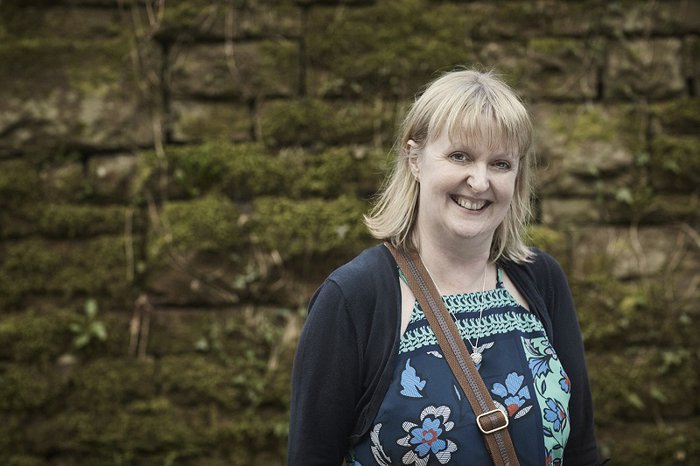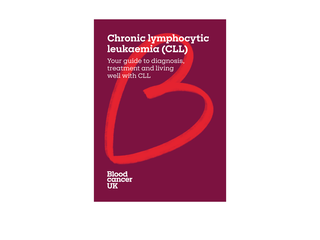Coping with my emotions while I watch and wait
Kate was diagnosed with small lymphocytic lymphoma (SLL) in September 2010, and has been on watch and wait ever since.

Kate was diagnosed with small lymphocytic lymphoma in September 2010, and has been on watch and wait ever since.
When I was diagnosed with small lymphocytic lymphoma in 2010, it was almost a relief. I’d pretty much worked out what the problem was in the month leading up to it.
I was already a haematology patient; a few years earlier I’d been diagnosed with a blood condition called immune thrombocytopenic purpura (where the number of platelets in your bloodstream can suddenly drop to dangerously low levels).
While I was having one of my regular check-ups in my local haematology clinic, I picked up a leaflet about lymphoma and realised I’d had almost every symptom.
Spotting the signs
I was a new mum when I first noticed these, so I’d put the tiredness and night sweats I was experiencing down to that. A few years later, my marriage broke up, and I lost a lot of weight; again, I put that down to the stress of the break-up.
But the second I found a lump on my groin, I realised something wasn’t quite right. I went to see my doctor, who told me to come back in a month if it was still there, and they’d run some tests.
A few weeks later, I rolled over in bed and realised the lump had got a lot bigger. I went back to my doctor, who referred me to see a specialist. The specialist advised that I needed a lymph node biopsy without delay. I saw my haematologist the day before the biopsy and said: “You're looking for lymphoma aren't you?” And she said: “Yes.”
The really difficult part for me was those few weeks where I was waiting for my test results. I thought I could be going straight in for treatment, so it was a relief to discover the lymphoma was slow-growing (indolent) and I’d be put on watch and wait.
The psychological battle
It took about two or three weeks before I really started to struggle with being on watch and wait, and the paranoia set in. I vividly remember doing the lump check every single day. It felt like the lumps in my armpit were getting bigger and I went to see my haematologist in floods of tears, terrified that it was developing.
At that point, I was referred to see a psychologist. I still often don't tell friends or my family how I'm feeling because I don’t want them to worry. Instead, every six weeks, I go and see my psychologist and dump my feelings and worries on her, and that’s been a huge help.
Fatigue is another problem for me; the sofa becomes my best friend when I’m at home. But I don't just attribute this tiredness to the fact that my body is generating cancer cells; I also think you get tired because you're living with this permanent unknown, constantly waiting for something to happen, and the stress is very tiring.
I look too well to have cancer and I’m not ill enough to need treatment, but my consultant has told me I have stage three cancer and I have to handle that somehow. In many respects, people on watch and wait are winning the war and losing the peace. The war being the clinical battle and the peace being the psychological battle.

Kate helped create our guide to CLL
She and other people with CLL share lots more tips and advice in the booklet, which also covers watch and wait, starting treatment, and the emotional impact of CLL.
Coping with anxiety
There are things out there that can help you cope with the mental battle, though. I found a leaflet about Lymphoma Action support groups about three months after I was diagnosed, walked in one evening, and I've been going ever since. I’m now also a member of the Facebook non-Hodgkin lymphoma support group, as well as being a Blood Cancer UK Ambassador.
I’ve been able to turn something negative into a positive by raising awareness, talking to people, blogging and building up our networks.
A new approach
One of the things I’ve noticed is that my attitude is changing as time goes on. The lesson I've learned, with a lot of psychological support, is that there's no point fighting against your diagnosis. You can't change it and so you have to accept it. By accepting it, to a certain extent, you're rolling with the punches and moving forward, but I would never have got to that position without support.
I try to take something positive from every single day, and I’d say I have a new-found love of life. I don't sweat the small stuff anymore and I've realised that sometimes you can get by without planning everything.
It's also given me a real focus. The people that I've met, the things I've got involved in, the fantastic stories I've heard, the trust that people have shown in me… all of those things are amazing. And they’ve completely changed how I live my life.

Active Monitoring (watch and wait)
If you’re on active monitoring (watch and wait), learn what it means and find ways to cope.
